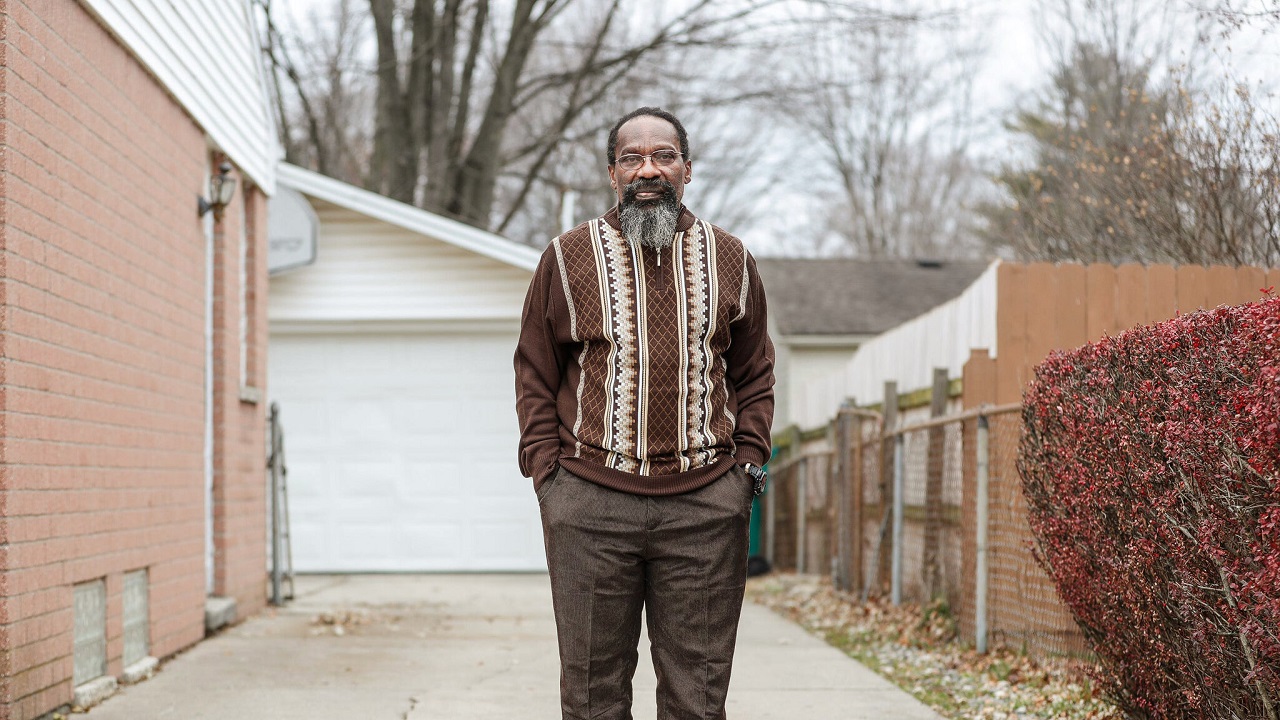
James Chad-Lewis
Dr. John Den Boer
On November 12, 1997, a 15-year-old girl was sexually assaulted in an alley near Hayes Street and Harper Avenue in Detroit, Michigan. She said she was dragged into the alley at gunpoint and a cloth was put over her head and was raped. She had not seen her attacker before. The girl was taken to a hospital where a rape kit was prepared. The crime went unsolved. It was not until 2009 when the Detroit Police Department obtained a federal grant, that the kit and more than 10,000 others were submitted for DNA testing, a process that took several years.
In 2017, a DNA profile developed from the rape kit was linked to James Chad-Lewis Clay because his DNA profile was in the FBI’s DNA database due to a prior conviction for possession of a stolen vehicle. Detroit police showed the rape victim, who was in her 30s, a photographic lineup that included a photograph of Clay as an adult. She was unable to identify Clay. When police questioned Clay, he denied attacking the woman. When he was shown a recent photograph of the woman taken in 2015–18 years after the attack—he denied knowing her. “I never seen her,” Clay said. “I do not know her. I never saw her a day in my life.” When he was informed that his DNA had been identified in the rape kit, he became angry. “That’s impossible,” he declared. “This is crazy….I never dated her. I don’t know her.” On August 4, 2017, he was charged with first-degree criminal sexual conduct. Not long after, the woman learned that Clay’s full name was James Chad-Lewis Clay. She told police that she had a boyfriend in high school who she knew as Chad and that they had been sexually involved at the time. She told police that she met him through a friend named Dion who was five feet, two inches tall, had green eyes, and played on the high school basketball team. She said that she and Chad would often skip school and stay at Chad’s aunt’s house. She said also she had a scar on her arm. When police questioned Clay about the woman’s statements, he said he lived with his mother and denied having sex with a girl with the woman’s first name or a girl with a scar on her arm. He denied knowing anyone named Dion. And he said nothing about staying at his aunt’s house—a fact he later attributed to being in shock because of the accusation.
During a court hearing prior to trial, Clay suddenly recalled the woman and that they had a sexual relationship 20 years earlier. However, during the trial in November 2017 in Wayne County Circuit Court, the woman said she did not recall Clay or having consensual sex with him. The prosecution presented the evidence that Clay’s DNA was found in the rape kit. There was additional DNA present that was not identified due to the size of the sample. On November 12, 2017, based solely on the DNA evidence, the jury convicted Clay of first-degree criminal sexual conduct. He was sentenced to 25 to 50 years in prison.
While his case was on appeal, Clay’s mother reached out to Steven Crane, of ACS Investigations, a private investigation firm in West Bloomfield, Michigan, to re-investigate the case. At the time, Crane was working on an investigation for Clay’s cellmate, who suggested Clay contact Crane. In 2019, Crane obtained a photograph of Clay when he was a teenager and showed it to the victim. She identified the photograph as that of a boyfriend named Chad with whom she had a consensual sexual relationship. When Crane showed her a photograph of Clay as an adult, she said that was the man who raped her, based on seeing him in court. Informed that the photos were of the same person, the woman subsequently provided a statement saying, “The James Clay that is in prison for my rape was my boyfriend in high school who went by the name Chad.” Crane also located Dyeon McIntyre, who had green eyes and confirmed that he knew the victim and “Chad.” He said he played basketball during high school, although on playgrounds. Shown a photograph of Clay as an adult, he identified it as “Chad.” When Crane provided the results of his investigation to Clay’s appellate attorney, Melvin Houston, he declined to accept it or review it, according to Crane. As a result, Crane reached out to the Michigan State Appellate Defenders Office, and subsequently an investigator from that office was assigned to work with Houston.
When Crane couldn’t get anyone to indicate that they were moving forward on a review of the case, he passed his information to reporter Elisha Anderson at the Detroit Free Press newspaper, and she began reinvestigating the case. On July 19, 2019, Anderson published a detailed account of the case that included interviews with the woman in which she confirmed what she told Crane as well as an interview with McIntyre. Clay’s aunt told Anderson that she had a home near where the victim lived and that “Chad was in and out of my house all the time.” A day earlier, the Wayne County prosecutor’s office and Houston had filed a joint motion with the Michigan Court of Appeals seeking to release Clay. A spokeswoman for the prosecutor’s office said, “When we were informed by the Free Press of the identity issue in the case (the prosecutor’s office) immediately began an investigation. It should be completed shortly.” “Based upon our findings so far, we have determined that it is in the best interests of justice to move the court to have Mr. Clay immediately released on a personal recognizance bond until the investigation concludes.” On July 23, 2019, Clay was released from prison. On August 31, 2019, Wayne County Circuit Court Judge Wanda Evans dismissed the case.





Leave a Reply